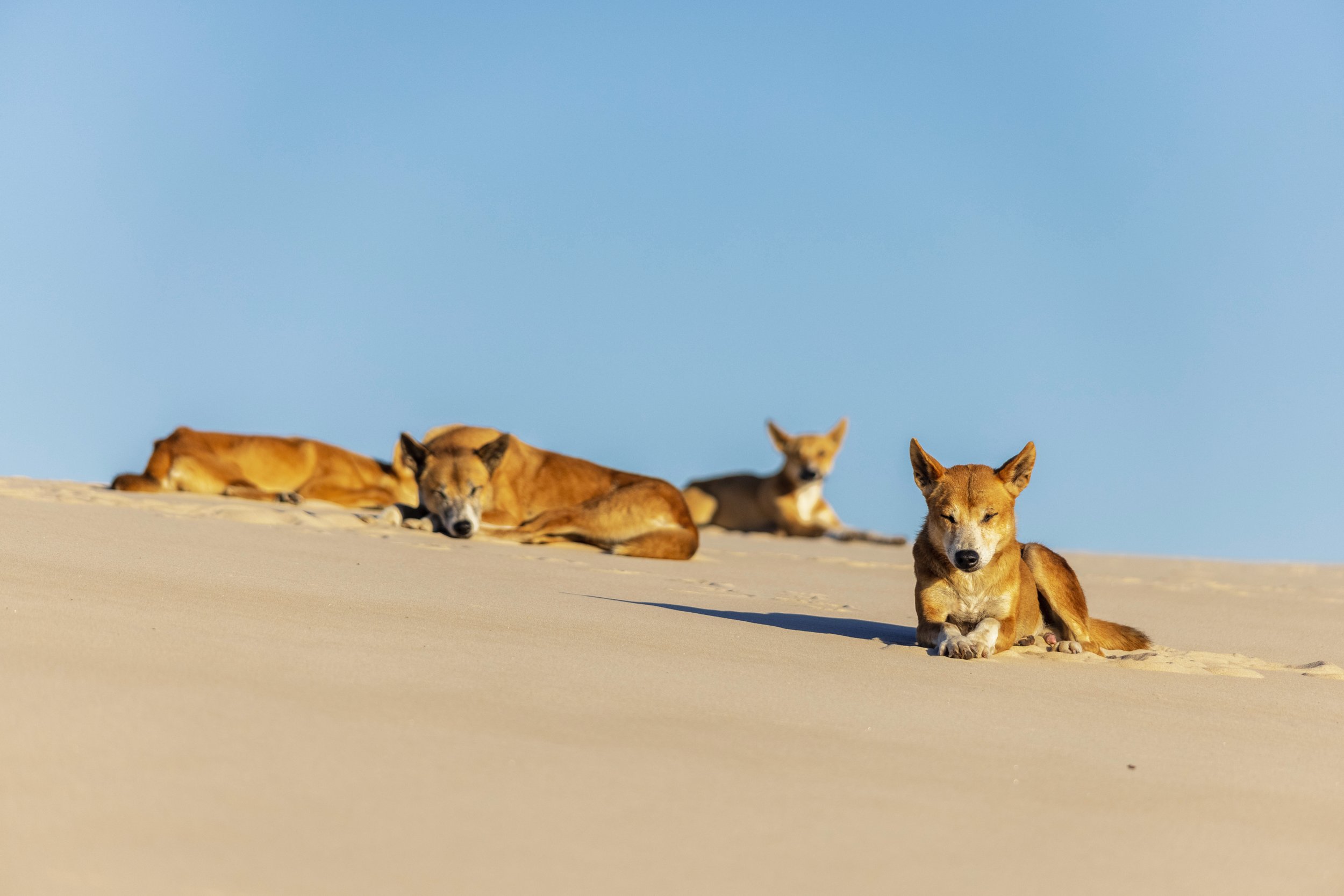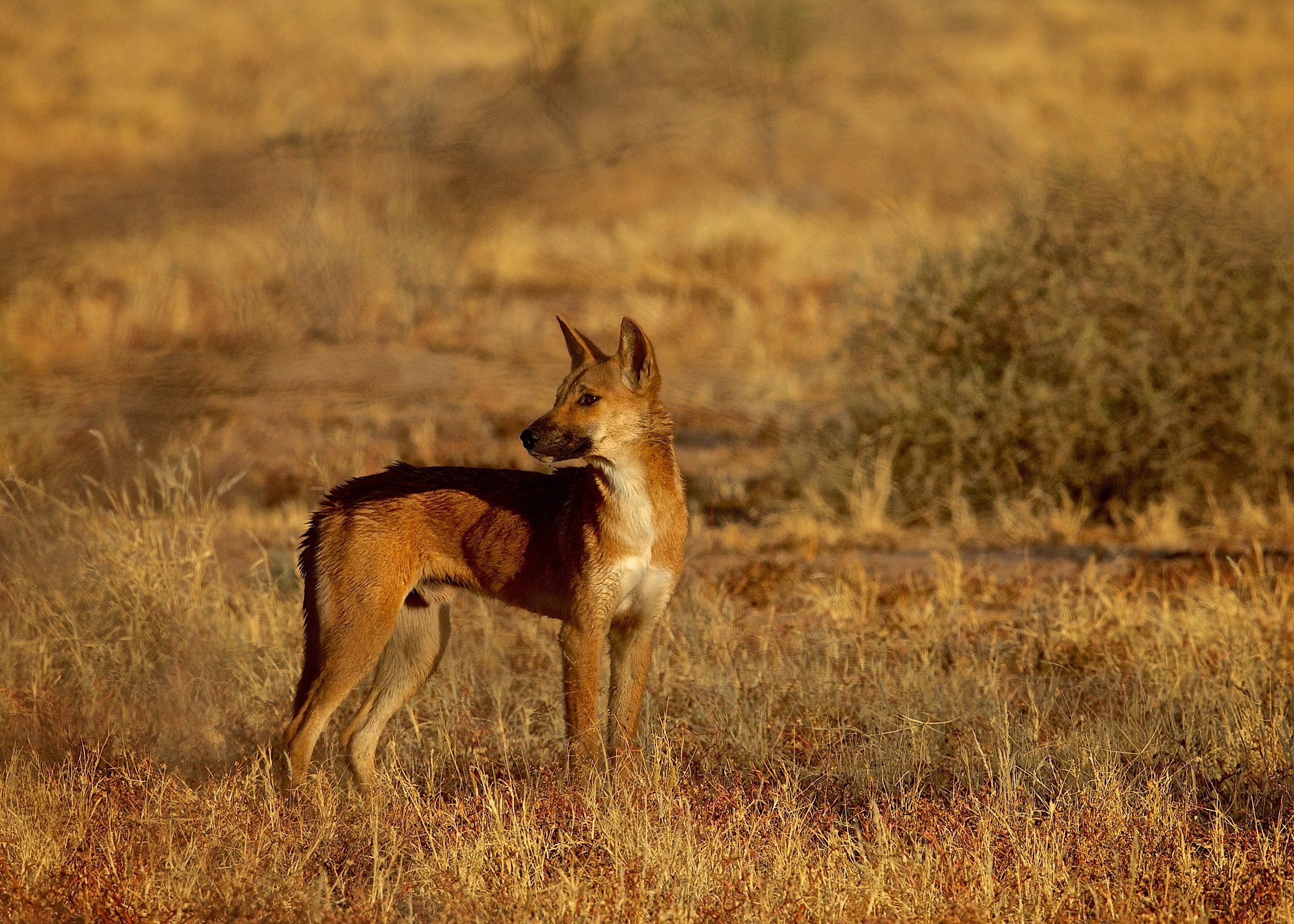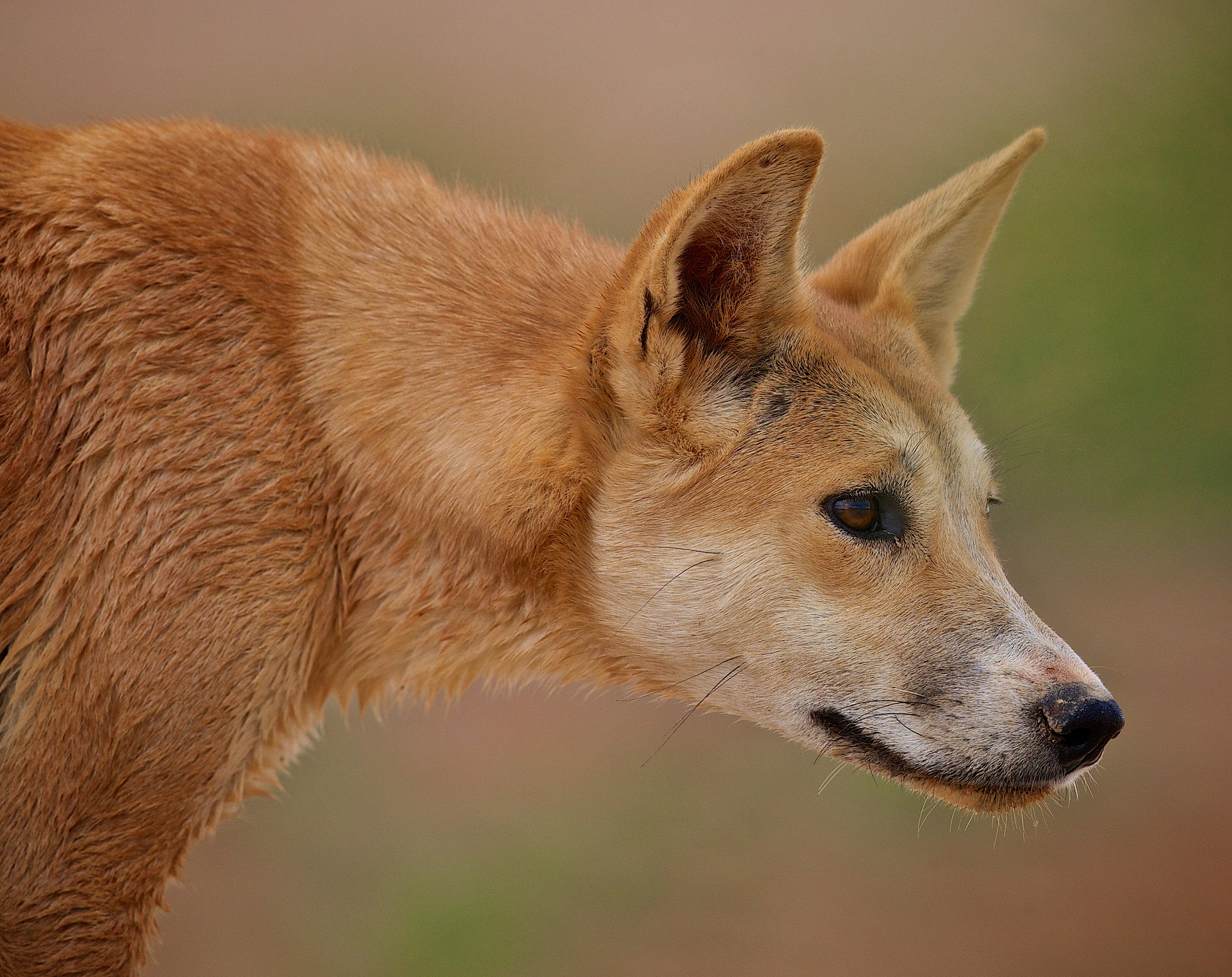
The Significance of the Dingo
In Indigenous Culture
Image: Angus Emmott
Dingoes are a sacred animal to many First Nations people across Australia. To some, they are considered family. Dingoes hold significant spiritual significance, and form an important part of Indigenous totems, Dreaming, lore/law and customs. They are a regular feature in Storytelling, rituals, ceremonies, art, songs and dances.
It is important to remember there are over 250 mobs across Australia,
and the significance of the Dingo is unique to different groups.
Dingoes throughout
Indigenous history
The Dingo has been represented across Indigenous cultural history in many ways. In Traditional Aboriginal society, women would often travel with Dingoes wrapped around their waists. They played an important role in the mobility and protection of women and children.
Dingo pups would be taken from the wild at a young age and grown up in the company of women and children. They provided hunting assistance, a living blanket and guarded against intruders. They would often return to the wild at two years of age to breed. This meant that Dingoes carried a dual role as both a human companion and top-order predator - keeping their independent and wild nature over thousands of years.
Companion Dingoes were given burials similar to that of family members, often in middens and in the same place as ancestors. This was possibly a way to connect them with ancestors, as middens form a spiritual link to the Elders past. The adoption of Dingoes into Aboriginal society and their sacred burial process are just some of the ways the Dingo is celebrated as a cultural keystone species in Indigenous culture.
Image: Dr. Donald Thomson.
Colonisations impact on
the Indigenous relationship with the Dingo
Colonisation, and the arrival of sheep and cattle, has had a deep and lasting impact on First Nations peoples’ important relationship with the Dingo. It became too dangerous to keep semi-wild canines in Aboriginal camps. Dingoes became the target of lethal control as livestock spread across the country. The absence of Dingoes would have had a significant impact on women, leading to a great loss of traditional knowledge.
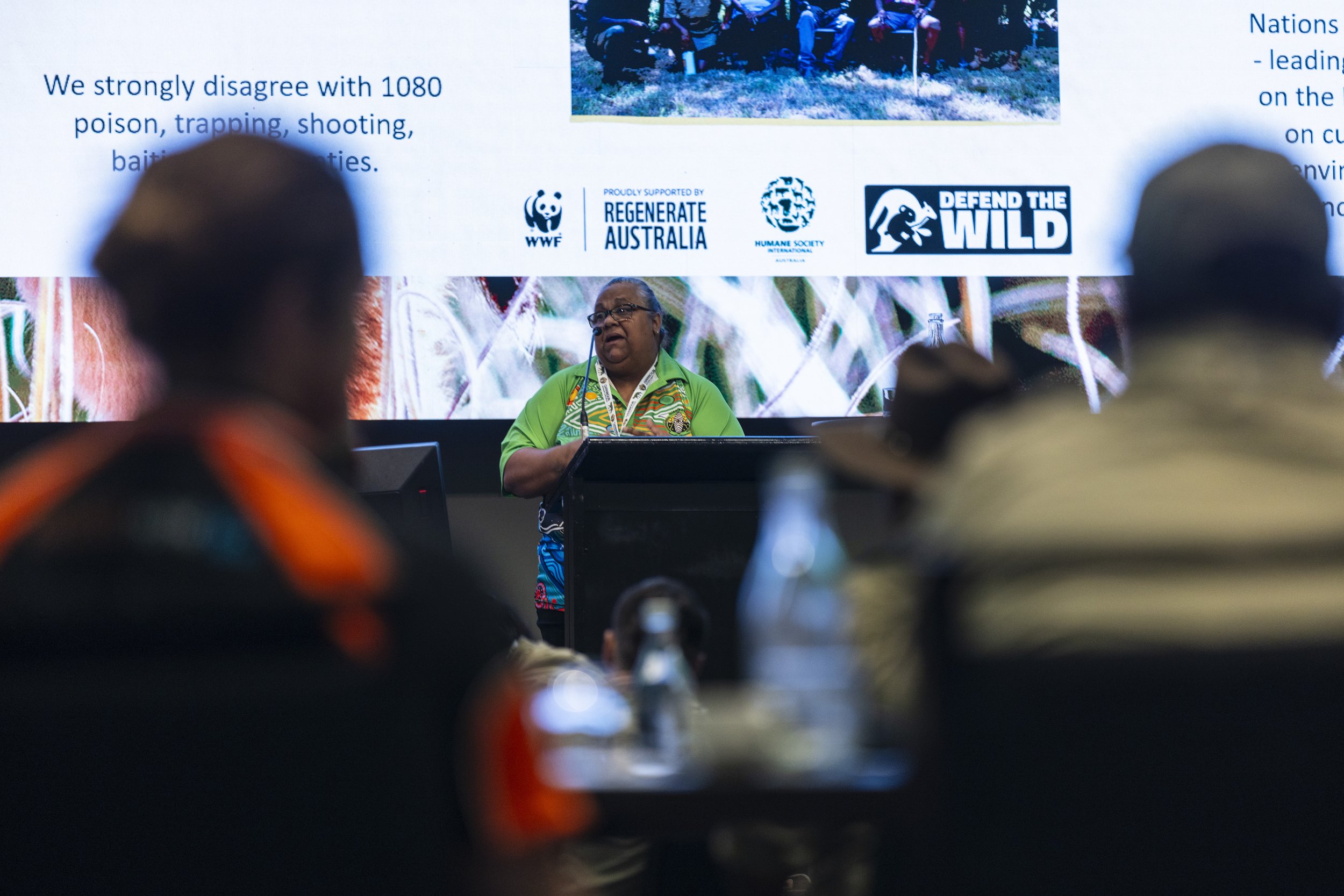
The Indigenous Voice for the Dingo
In September 2023, for the first time in history, First Nations people from across the country came together to have their say on current Dingo management at the National Inaugural First Nations Dingo forum, hosted by Girringun Aboriginal Corporation. At the conclusion of this forum, more than 20 First Nations groups signed a National First Nations Dingo Declaration, which highlighted the cultural importance of Dingoes, and has gained support from many more Indigenous groups since.
A historical declaration
The declaration outlines that Dingoes represent a vital connection to Country. That they mapped ancestral songlines across the continent, formed lands, waterways and constellations and are essential to keeping storylines, custom and culture alive.
‘Dingoes are Boss of Country. They belong in the landscape. Their presence in the ecosystem ensures natural systems remain in balance. This role is greatly under-appreciated. The direct and indirect effects of the Dingo on native and pest species are clear and apparent.’
It outlines that the use of the term ‘wild-dog’ is not supported by First Nations people as it diminishes the Dingo and ‘disrespects and disregards culture’.
Advocating for
a collaborative,
non-lethal model
The First Nations Dingo Declaration outlines ‘We do not, and have never, approved of the killing of Dingoes. Killing Dingoes is killing family. We demand an immediate stop to this ‘management’ across Australia.’
First Nations people advocate for non-lethal management of Dingoes, a model referred to as ‘caring for Dingoes on County’, which would see Dingoes protected by law - combining Indigenous knowledge with evidence-based practice to promote peaceful coexistence, ensuring the interests of farmers are protected.
Image: Angus Emmott
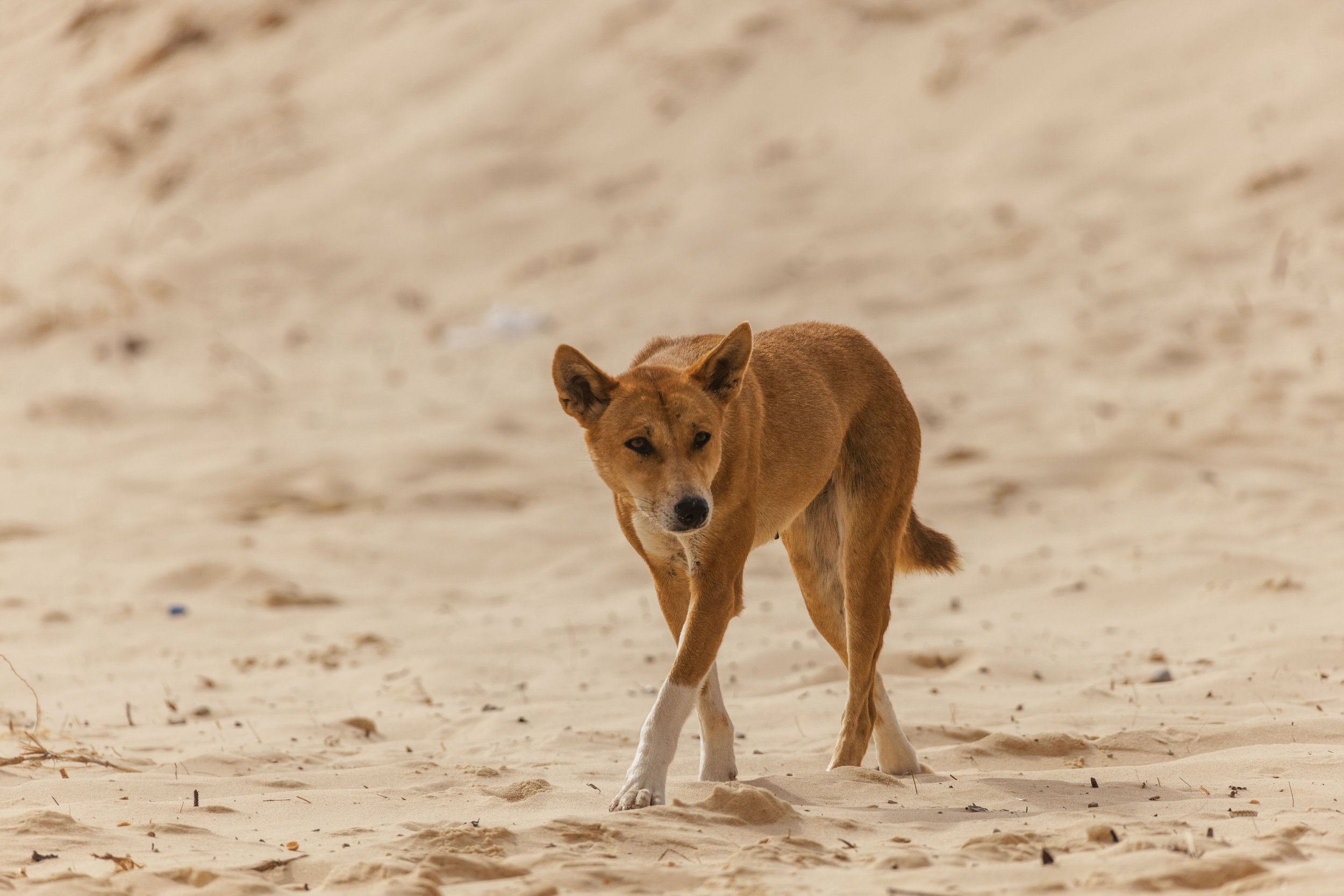
Dingo Culture is an online platform focused on promoting the aspirations of Traditional Owners in relation to Dingo management. It works to support the cultural aspirations and wellbeing of First Nations people in having a voice in the protection, care, and the right to provide a safe haven for Dingoes as a culturally significant totem animal.
Learn more about First Nations perspectives on the Dingo
Support for local Traditional Owner aspirations for Dingoes
Following the National Inaugural First Nations Dingo Forum and subsequent Declaration, a national steering committee of First Nations representatives for the Dingo has been formed. This steering committee is in place to inform resources and advice around caring for Dingoes on Country. It is also in place to support the growing number of Indigenous people seeking to manage Dingoes on Country.
